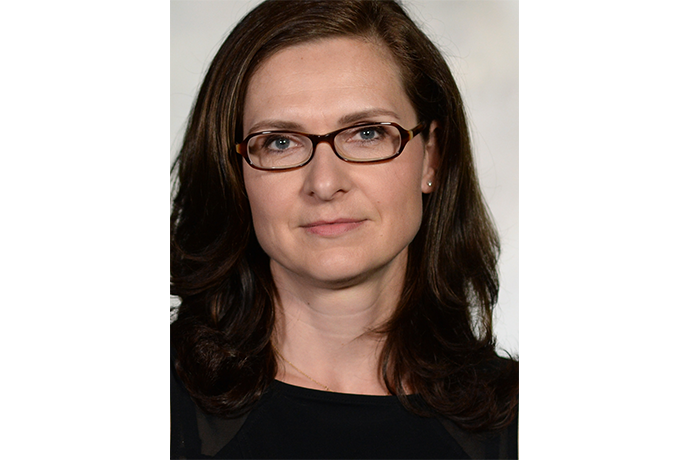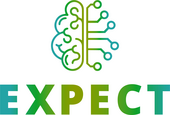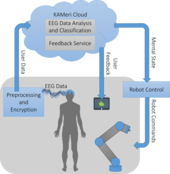
Prof. Dr. Elsa Andrea Kirchner
Organizational unit
Robotics Innovation Center
Address
(Bremen)
Robert-Hooke-Straße 128359 Bremen

Publications
All publicationsProfile
Prof. Dr. rer. nat. Elsa Andrea Kirchner has been a professor at the University of Duisburg-Essen since 2021, where she heads the "Medical Technology Systems" department at the Faculty of Engineering. She also heads the "Intelligent Healthcare Systems" team at the Robotics Innovation Center of the German Research Center for Artificial Intelligence (DFKI) in Bremen, where she worked for many years.
After her studies in biology, Elsa Andrea Kirchner laid the foundation of her interdisciplinary research in the areas of human-robot interaction, embedded brain reading, neurophysiological methods (especially EEG, EMG, and other physiological data as well as motion data), behavioral analysis in humans, learning in humans and in artificial agents, embedded AI, embodied AI, and hybrid AI with a research stay at the Department of Brain and Cognitive Sciences at MIT in Boston/USA supported by the “Familie Klee Award”.
Her PhD in computer science was recognized as one of the best of the year by the “Gesellschaft für Informatik” in 2014. She is the author of more than 100 publications in international journals and conferences and 9 book chapters. For research transfer, Elsa Andrea Kirchner is involved, among other things, as a founding member of the DLR space management network "Space2Health".
Furthermore, from 2018 to August 2022 she was a member of Germany’s Platform for Artificial Intelligence in Working Group 6 ‘Health Care, Medical Technology, Care’. In September 2022, she assumed co-leadership of Working Group 7 ‘Learning Robotics Systems’ within this network. In April 2023, she has been appointed to the "Council for Technological Sovereignty" of the BMBF.
CoEx
Entwicklung von Methoden zur Co-Adaptation für die Ermöglichung und Verbesserung von Exoskelett-basiertee (Tele-) RehabilitationCo-adaptation to enable and improve exoskeleton-based (tele-) rehabilitation
EXPECT
Exploring the Potential of Pervasive Embedded Brain Reading in Human Robot CollaborationsThe main goal of the EXPECT project is the development of an adaptive, self-learning platform for human-robot collaboration that not only enables various types of active interaction, but is also…

KAMeri
Cognitive Occupational Safety for Human-Machine InteractionThe project KAMeri focuses on the improvement of occupational safety in a working context by analysing brainwaves and adapting human-maschine interaction according to the worker’s cognitive state. An…

RECUPERA
RECUPERA-Reha Full-body exoskeleton for upper body robotic assistanceThe aim of RECUPERA-Reha is the development of an innovative and mobile full-body exoskeleton, as well as and of an active subsystem as an independent unit for robot-assisted rehabilitation of…
IMMI
IMMI - Intelligent Man-Machine InterfaceIn contrary to ordinary Brain Computer Interface (BCI) approaches, Brain Reading (BR) is based on the the concept of observing an operator without distracting him from his actual task. Hence, the…
